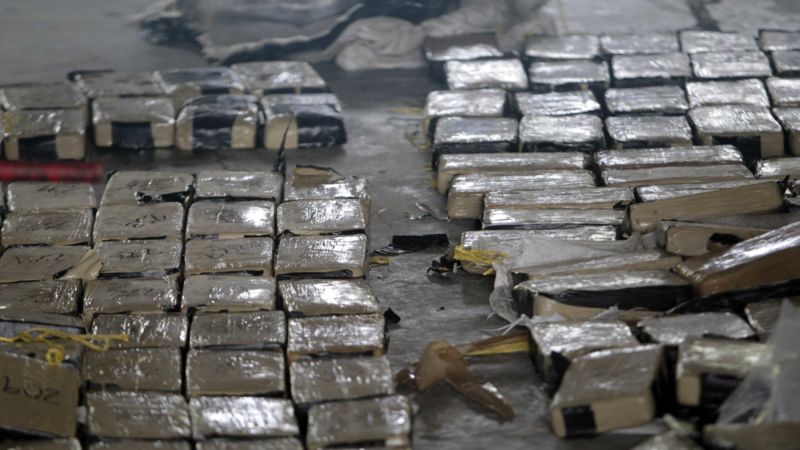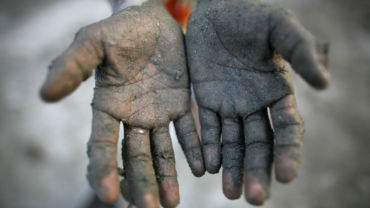The country of Honduras has become a gateway point for a significant source of drug trafficking into the United States, along with the proliferation of other crimes
In the darkest shadows of the underworld, a secret apocalyptic alliance of drug kingpins, corrupt politicians, traitors within ally armed forces, and countless dirty cops created a clear and present danger south of the U.S. border. They murder anyone in their way. Their motive for flooding America with illegal drugs is inspired by a sick ideology pronounced by one of its most influential leaders who is alleged to have declared he “wanted to shove the drugs right up the noses of the gringos” by flooding the U.S with cocaine. He wants to cripple America.
According to four U.S. prosecutors, that quote came from the lips of the president of an ally nation, Honduras. Yes, credible evidence asserts that President Juan Orlando Hernandez (aka JOH) of Honduras spoke those words.
Although Honduras’ contribution to this apocalyptic alliance is horrifying, recent history strongly suggests there are people of significant power in several other nations south of the U.S. that participate in this axis of destruction.
There’s no secret about why Honduras’ impoverished and unserved masses are clamoring to find refuge to the north. Honduras has one of the highest rates in the world of homicides and crime. The country has spiraled into human rights, economic, political, and social crisis, driving tens of thousands of Hondurans out of the country.
Drug trafficking via Honduras
Since 2015, between 150 and 300 tons of cocaine per year has passed through Honduras, on its way to the streets of America. Credible estimates are that 90% of that cocaine successfully makes its way to U.S. cities. This disaster exists because Honduras has become a sophisticated state-sponsored narco-empire servicing Colombian cartels as the safest trans-shipment point for hundreds of tons of cocaine flown in planes and piloted in ships to its shores. At many Honduran clandestine airstrips, military bases, and commercial ports, ton after ton of cocaine is delivered from clandestine labs in Colombia and Venezuela. From there, dump trucks full of cocaine traverse roads protected by corrupt soldiers, dirty cops, bribed politicians, and traffickers to Guatemala and points north, where it is delivered and sold to Mexican cartels who, with the help of a global network of gangs, gets their poison into American neighborhoods.
There is much more to this story that can be found in the March 10, 2021 article, Horror in Honduras, published by Thomson Reuters Business Insight.
The Honduran alliance with Colombian and Mexican cartels has now also given birth to clandestine drug labs in the jungles of Honduras manned by a combination of Honduran and Colombian traffickers who cook hundreds of kilos of cocaine at a time. The evidence presented in U.S. courtrooms overwhelmingly indicates that this cabal has been organized and enabled by none other than the man that holds the highest office in Honduras, President JOH.
In an effort to attack the command and control of Honduras’ horror machine, in about 2012, agents assigned to the U.S. Drug Enforcement Administration’s (DEA’s) Special Operations Division unleashed a focused initiative to develop prosecutable cases against every member of the Rivera Maradiaga family, all of whom were senior leaders of Los Cachiros, one of the most lethal drug cartels in Honduras. This initiative included coordination with the U.S. Treasury Department’s Office of Foreign Asset Control (OFAC) that levied sanctions on every member and asset of the Rivera Maradiaga family pursuant to the Foreign Narcotics Kingpin Designation act. The OFAC sanctions were designed to cripple Los Cachiros through the seizure of what was estimated to be an $800 million illicit fortune.
Plea bargaining leads to criminal roadmap
DEA’s plan quickly scored big. As it became evident to competing narco clans in Honduras that the Rivera Maradiaga family was seriously weakened, Devis Leonel Rivera Maradiaga, the most powerful member of Los Cachiros, knew his and his family members’ futures in Honduras would eventually be in grave danger. His instincts told him that his competitors and powerful people about whom he knew dark secrets would eventually try to kill every Rivera Maradiaga they could find. He had only one option: Secretly reach out to DEA and U.S. prosecutors to work out a deal for himself and his entire clan.
As a result, beginning in late 2013, Devis Leonel Rivera Maradiaga secretly agreed to plead to very serious charges in the U.S. and began several years of covert assistance with the very DEA agents who had pursued his lengthy imprisonment.
Cooperation by members of the Rivera Maradiaga family gave the DEA a roadmap that connected the dots between corrupt politicians, dirty cops, corrupt military personnel, and some of the most powerful traffickers in the world. Cases were quietly built against an array of Honduran elites, and the DEA began arresting those key players when they travelled outside of Honduras with arrests made in Nicaragua, the U.S., and Mexico. Prosecutors from the DEA and the U.S. Department of Justice also negotiated the voluntary surrender of a significant number of high-level Honduran traffickers who quietly travelled to the U.S., agreed to long prison sentences, and coughed up everything they knew about the members and methods of the apocalyptic alliance.
The biggest public window into the startling extent of corruption, trafficking, and murder carried out by the apocalyptic alliance in Honduras played out in a Manhattan courtroom in late-2019 during the trial of Juan Antonio “Tony” Hernandez, the brother of President JOH. Like his brother, Tony Hernandez was a member of the National Party of Honduras and a deputy in the National Congress of Honduras until 2018.
The DEA knew, however, that Tony Hernandez was also a drug kingpin. Now, due to his conviction, he is a U.S. federal inmate.
This blog post is based on an article written by Robert Mazur, a retired Special Agent in the U.S. Drug Enforcement Administration and author of the book, “The Infiltrator”. (All Rights Reserved by Robert Mazur.)







